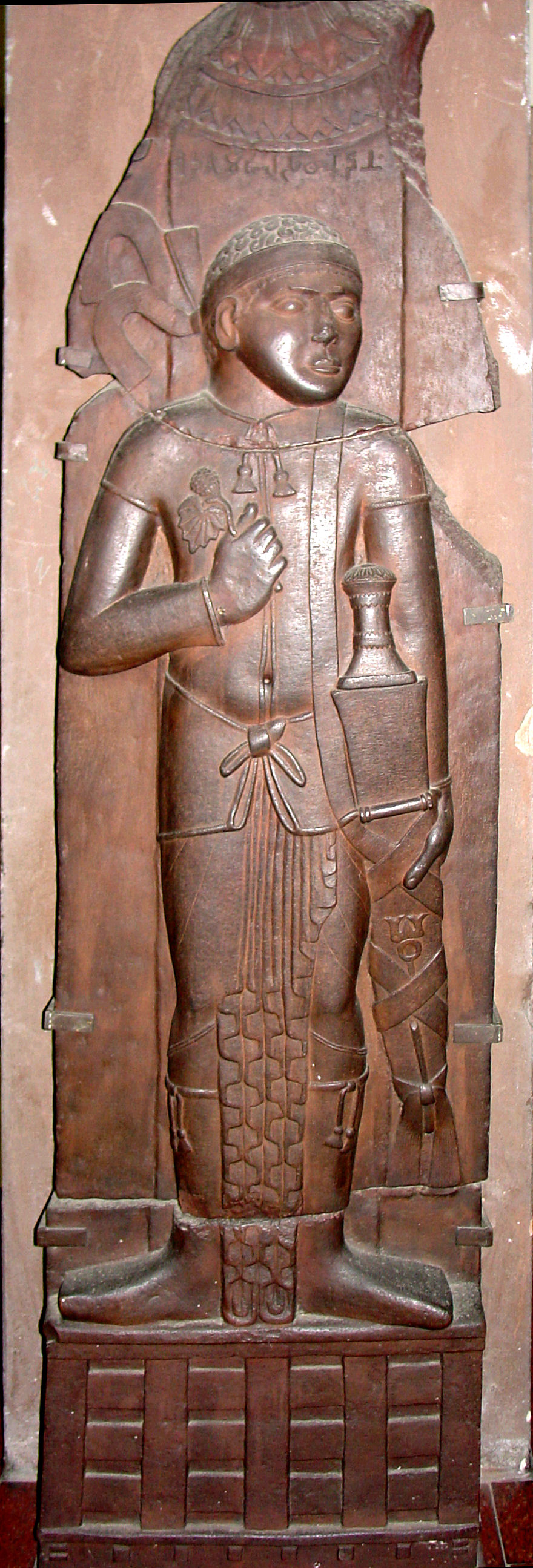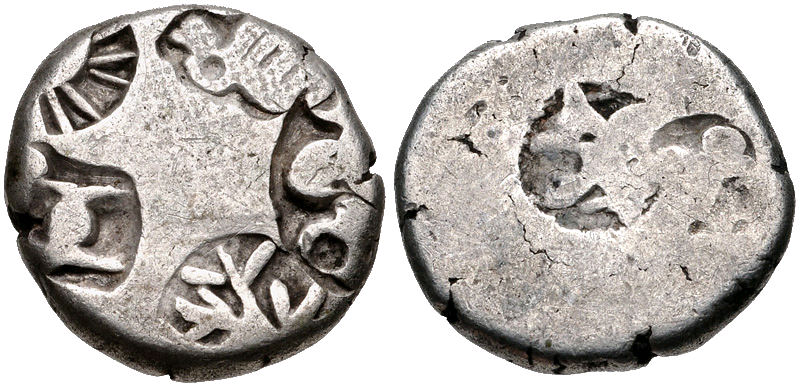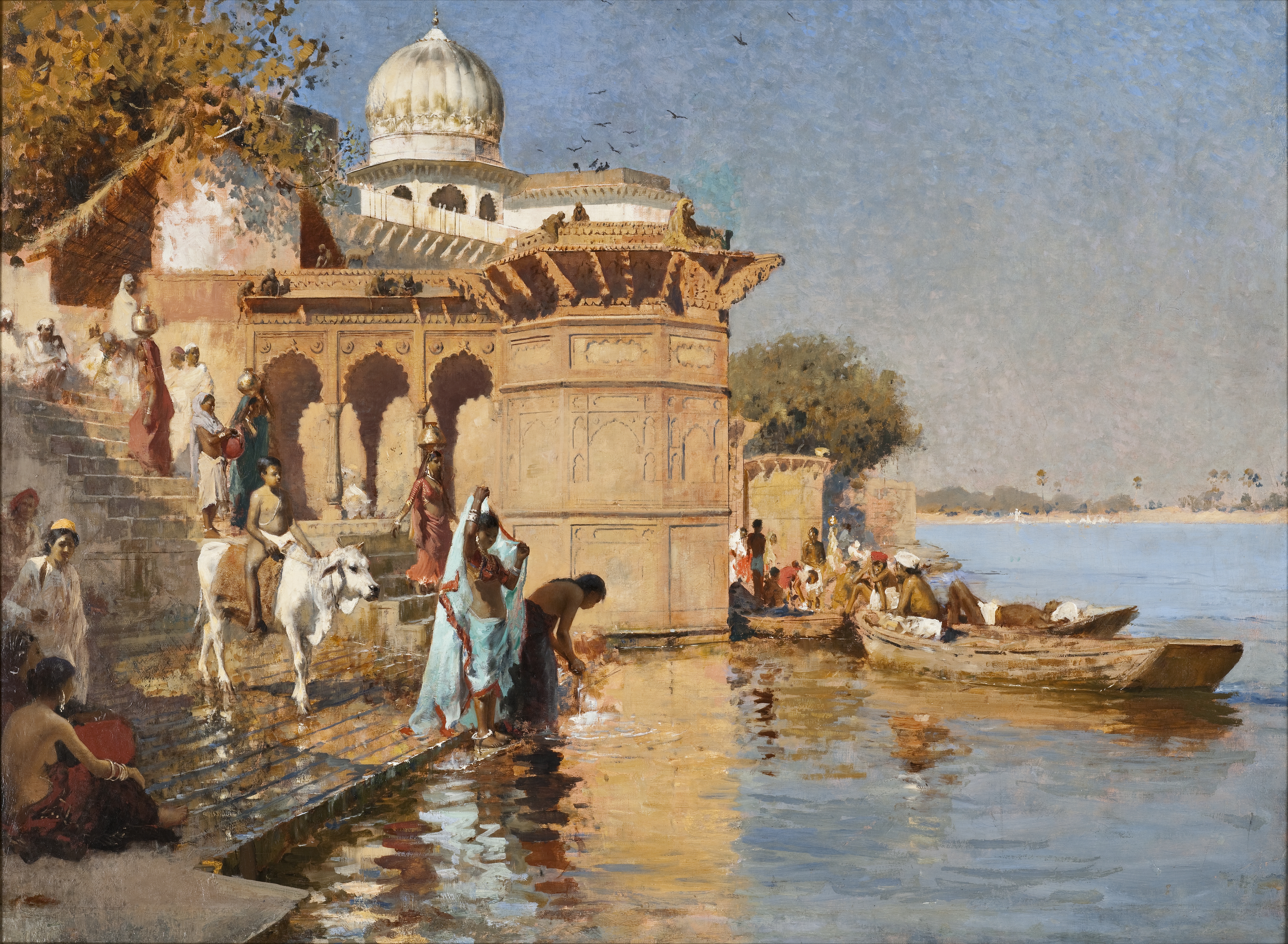|
Yuga Purana
The ''Yuga Purana'' is a Sanskrit text and the last chapter of a ''Jyotisha'' (astrology) text '' Vriddhagargiya Samhita''. It is also considered a minor text in the Puranic literature. Contents The Yuga Purana is structured as a chronicle, and is notable for historical information presented as a prophecy. It is the only surviving Indian text that includes a detailed description of Greeks who advanced into India after Alexander the Great, and the Indo-Greek conquest of Pataliputra, the capital of the Mauryan Empire.A Comprehensive History Of Ancient India, Sterling Publishers Pvt. Ltd, 2003, p.9/ref> It includes mythology, but also chronicles the Magadha empire, Maurya emperor Shalishuka, the Shunga dynasty the Yavanas, and Sakas. The record is described in the style of a "prophecy" (future tense), as if the text was written before recorded human history began. The invasion of the Yavanas (i.e., Indo-Greeks, under Demetrius I or Menander I, c. 180 BCE) is described in a rathe ... [...More Info...] [...Related Items...] OR: [Wikipedia] [Google] [Baidu] |
Shalishuka
Shalishuka () Maurya was a ruler of the Indian Maurya dynasty. He ruled from 215–202 BCE. He was the successor and son of Samprati, Samprati Maurya. While the Yuga Purana section of the Gargi Samhita mentions him as a quarrelsome, unrighteous ruler, he is also noted as being of "righteous words" According to the Puranas he was succeeded by Devavarman (Maurya), Devavarman.Thapar, Romila (2001). '' and the Decline of the Mauryas'', New Delhi: Oxford University Press, , p.183 Notes Mauryan emperors 3rd-century BC Indian monarchs 3rd-century BC births 210s BC deaths {{India-royal-stub ... [...More Info...] [...Related Items...] OR: [Wikipedia] [Google] [Baidu] |
Ludo Rocher
Ludo Rocher (1926–2016) was an eminent Sanskrit scholar, and the W. Norman Brown Professor Emeritus of South Asia Studies at the University of Pennsylvania. Biography Ludo Rocher was born in Hemiksem in the province of Antwerp, Belgium on 25 April 1926. He became a U.S. citizen in 1972. Rocher received his MA (summa cum laude) in Classics with a minor in Sanskrit in 1948 from the University of Ghent. Subsequently, he was awarded two doctorates by the same university – a JD (Juris Doctor) in 1950 and a PhD (also summa cum laude) in 1952. His principal teacher at the university was Adriaan Scharpé. He also studied ''Veda'' with Jan Gonda at the University of Utrecht, as well as ''Mīmāṃsā'', ''Nyāya'', and ''Vyākaraṇa'' privately with Barend Faddegon, then Emeritus Professor of the University of Amsterdam. He spent a post-doctoral semester at the School of Oriental and African Studies, University of London, where he studied Sanskrit with C.A. Rylands, Hindi with John ... [...More Info...] [...Related Items...] OR: [Wikipedia] [Google] [Baidu] |
Bactria
Bactria (; Bactrian: , ), or Bactriana, was an ancient region in Central Asia in Amu Darya's middle stream, stretching north of the Hindu Kush, west of the Pamirs and south of the Gissar range, covering the northern part of Afghanistan, southwestern Tajikistan and southeastern Uzbekistan. Called "beautiful Bactria, crowned with flags" by the Avesta, the region is one of the sixteen perfect Iranian lands that the supreme deity Ahura Mazda had created. One of the early centres of Zoroastrianism and capital of the legendary Kayanian kings of Iran, Bactria is mentioned in the Behistun Inscription of Darius the Great as one of the satrapies of the Achaemenid Empire; it was a special satrapy and was ruled by a crown prince or an intended heir. Bactria was the centre of Iranian resistance against the Macedonian invaders after the fall of the Achaemenid Empire in the 4th century BC, but eventually fell to Alexander the Great. After the death of Alexander, Bactria was annexed by ... [...More Info...] [...Related Items...] OR: [Wikipedia] [Google] [Baidu] |
Madhya Pradesh
Madhya Pradesh (, ; meaning 'central province') is a state in central India. Its capital is Bhopal, and the largest city is Indore, with Jabalpur, Ujjain, Gwalior, Sagar, and Rewa being the other major cities. Madhya Pradesh is the second largest Indian state by area and the fifth largest state by population with over 72 million residents. It borders the states of Uttar Pradesh to the northeast, Chhattisgarh to the east, Maharashtra to the south, Gujarat to the west, and Rajasthan to the northwest. The area covered by the present-day Madhya Pradesh includes the area of the ancient Avanti Mahajanapada, whose capital Ujjain (also known as Avantika) arose as a major city during the second wave of Indian urbanisation in the sixth century BCE. Subsequently, the region was ruled by the major dynasties of India. The Maratha Empire dominated the majority of the 18th century. After the Anglo-Maratha Wars in the 19th century, the region was divided into several princel ... [...More Info...] [...Related Items...] OR: [Wikipedia] [Google] [Baidu] |
Dilip Kumar Chakrabarti
Dilip Kumar Chakrabarti (born 27 April 1941) is an Indian archaeologist, Professor Emeritus of South Asian Archaeology at Cambridge University, and a Senior Fellow at the McDonald Institute for Archaeological Research, Cambridge University. He is known for his studies on the early use of iron in India and the archaeology of Eastern India. Career Dilip K Chakrabarti is the first person to hold professorship in the field of ancient Indian history at Cambridge University. He started his career as a lecturer of Archaeology at Calcutta University from 1965 to 1977. He was a reader of Archaeology at Delhi University from 1977 to 1990 and also held a tenured appointment at Visva Bharati University from 1980 to 1981. He moved to a teaching post in South Asian archaeology at Cambridge University in 1990 and was promoted to professor prior to his retirement in 2008. He has also held visiting fellowships, scholarships, teaching appointments and received grants in Cambridge, Edinburgh, Tehra ... [...More Info...] [...Related Items...] OR: [Wikipedia] [Google] [Baidu] |
Mathura, Uttar Pradesh
Mathura () is a city and the administrative headquarters of Mathura district in the Indian state of Uttar Pradesh. It is located approximately north of Agra, and south-east of Delhi; about from the town of Vrindavan, and from Govardhan. In ancient times, Mathura was an economic hub, located at the junction of important caravan routes. The 2011 Census of India estimated the population of Mathura at 441,894. In Hinduism, Mathura is birthplace of Krishna, which is located at the Krishna Janmasthan Temple Complex. It is one of the Sapta Puri, the seven cities considered holy by Hindus, also called Mokshyadayni Tirth. The Kesava Deo Temple was built in ancient times on the site of Krishna's birthplace (an underground prison). Mathura was the capital of the kingdom of Surasena, ruled by Kansa, the maternal uncle of Krishna. Mathura is part of the Lord Krishna circuit (Mathura,Vrindavan, Barsana, Govardhan, Kurukshetra, Dwarka and Bhalka). Janmashtami is grandly celebrate ... [...More Info...] [...Related Items...] OR: [Wikipedia] [Google] [Baidu] |
Menander I
Menander I Soter ( grc, Μένανδρος Σωτήρ, Ménandros Sōtḗr, Menander the Saviour; pi, मिलिन्दो, Milinda), was a Greco-Bactrian and later Indo-Greek King (reigned c.165/155Bopearachchi (1998) and (1991), respectively. The first date is estimated by Osmund Bopearachchi and R. C. Senior, the other Boperachchi –130 BC) who administered a large territory in the Northwestern regions of the Indian Subcontinent from his capital at Sagala. Menander is noted for having become a patron and convert to Greco-Buddhism and he is widely regarded as the greatest of the Indo-Greek kings. Menander might have initially been a king of Bactria. After re-conquering the Punjab he established an empire which stretched from the Kabul River valley in the west to the Ravi River in the east, and from the Swat River valley in the north to Arachosia (the Helmand Province). Ancient Indian writers indicate that he launched expeditions southward into Rajasthan and as far ... [...More Info...] [...Related Items...] OR: [Wikipedia] [Google] [Baidu] |
Demetrius I Of Bactria
Demetrius I Anicetus ( grc, Δημήτριος Ἀνίκητος, Dēmētrios Anikētos, "the unconquered"), also called Damaytra was a Greco-Bactrian and later Indo-Greek king (Yona in Pali language, "Yavana" in Sanskrit) (reigned c. 200–167 BC), who ruled areas from Bactria to ancient northwestern India. He was the son of the Greco-Bactrian Kingdom's ruler Euthydemus I and succeeded him around 200 BC, after which he conquered extensive areas in what is now southern Afghanistan, Iran and Pakistan and India. He was never defeated in battle and was posthumously referred to as "the Unconquered" (''Aniketos'') on the pedigree coins of his successor Agathocles. Demetrius I may have been the initiator of the Yavana era, starting in 186–185 BC, which was used for several centuries thereafter. "Demetrius" was the name of at least two and probably three Bactrian kings. The much debated Demetrius II was a possible relative, whereas Demetrius III (), is known only from numismatic ... [...More Info...] [...Related Items...] OR: [Wikipedia] [Google] [Baidu] |
Yavana
The word Yona in Pali and the Prakrits, and the analogue Yavana in Sanskrit and Yavanar in Tamil, were words used in Ancient India to designate Greek speakers. "Yona" and "Yavana" are transliterations of the Greek word for "Ionians" ( grc, Ἴωνες < Ἰάoνες < *Ἰάϝoνες), who were probably the first Greeks to be known in the East. Both terms appear in ancient literature. ''Yavana'' appears, for instance, in the '''', while ''Yona'' appears in texts such as the n chronicle '' Mahavamsa''. The Yona are mentioned in ... [...More Info...] [...Related Items...] OR: [Wikipedia] [Google] [Baidu] |



_male.jpg)


